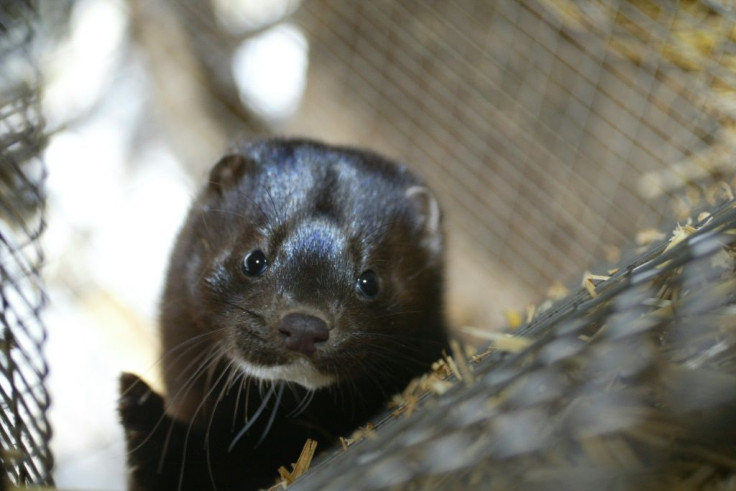Dutch Ban Transport Of Mink After Farm Workers Infected
Dutch authorities on Thursday announced a nationwide ban on the transport of mink after mink farm workers were believed to have contracted coronavirus from the small mammals.
The infections in the south of the Netherlands could be the "first known cases of animal-to-human transmission", the World Health Organization had said on Tuesday.
The Dutch government had previously made COVID-19 testing mandatory on all mink farms in the country, where the animals are bred for their fur.
"Until the results of this screening are known," the transport of mink and mink manure will be banned to combat the spread of the new coronavirus, Public Health Minister Hugo de Jonge and Agriculture Minister Carola Schouten said in a letter to parliament.
There have been no mink exports to countries outside of the European Union this year, the ministers added.
However, it is not possible to know whether mink was traded from the Netherlands to other EU member states in 2020 because this trade is not subject to a European certificate, they said.
According to the ministers, health authorities consider the risk of contamination "negligible" outside the four Dutch farms where infected mink have been reported.

The initial infection of a mink farm worker was reported last week on one of two farms near the southern city of Eindhoven, where the disease was discovered in April among mink.
The infection happened before it was known that the mink were carrying the virus, meaning that workers did not wear protective clothing at the time.
The health ministry said on Tuesday that three people on the farm tested positive for the virus, but said that it remained unclear if more than one of the cases had come directly from a mink.
There have been more than 5,900 coronavirus deaths and 45,950 infections in the Netherlands, according to the latest official figures.
The exact source of the virus, which first appeared in China late last year, remains unknown, and there is growing pressure for an international probe to determine its origin.
Most scientists believe the virus jumped from animals to humans, possibly in a market that sells exotic animals for meat in the city of Wuhan.
Since the initial jump to humans, there have been no previous reports of animals being the source of infections.
© Copyright AFP 2024. All rights reserved.











